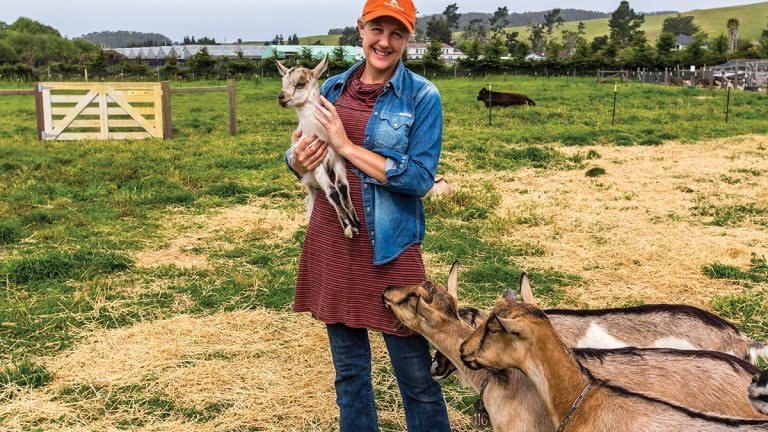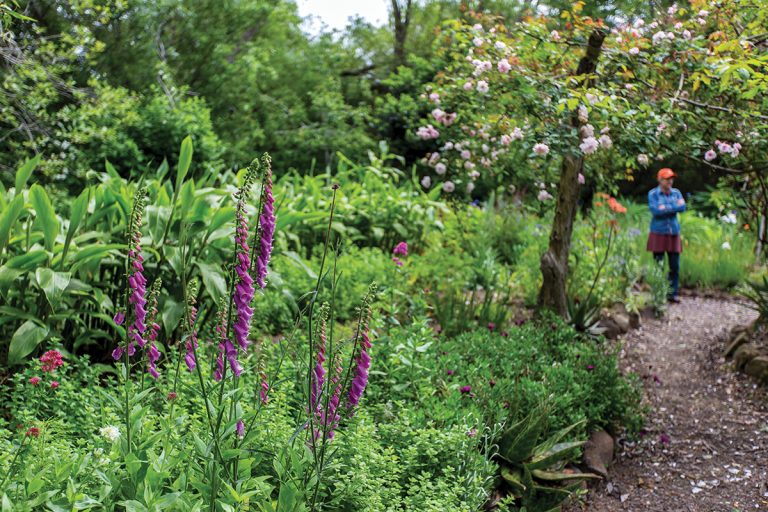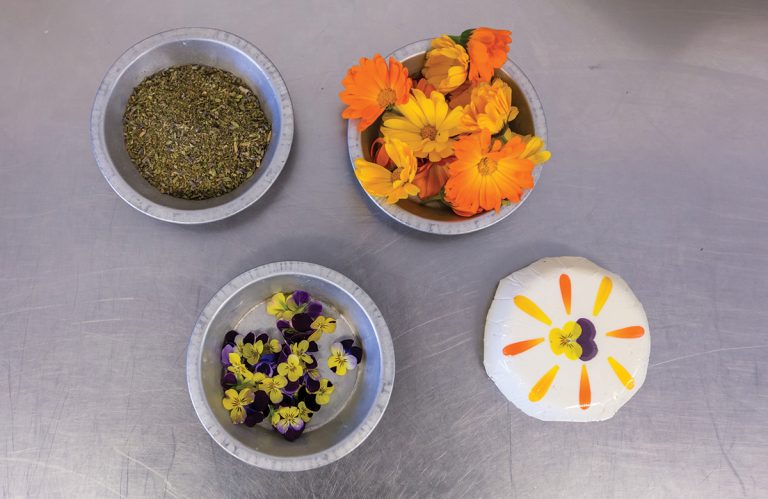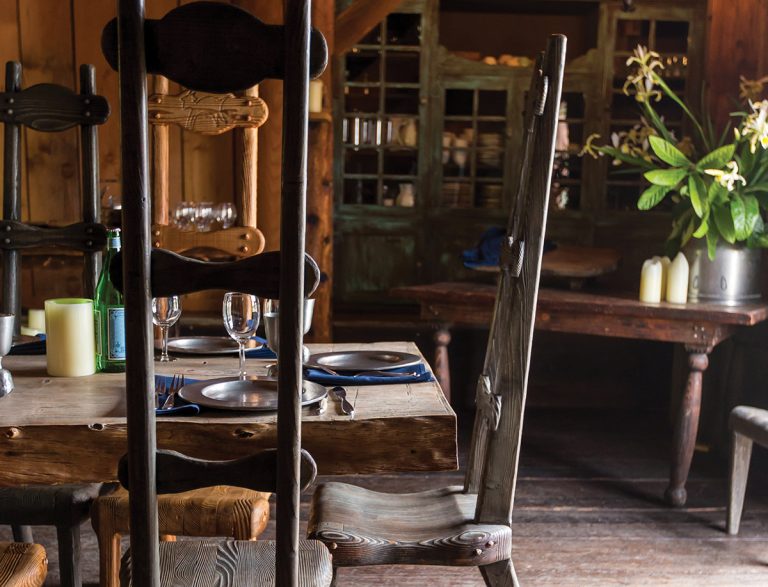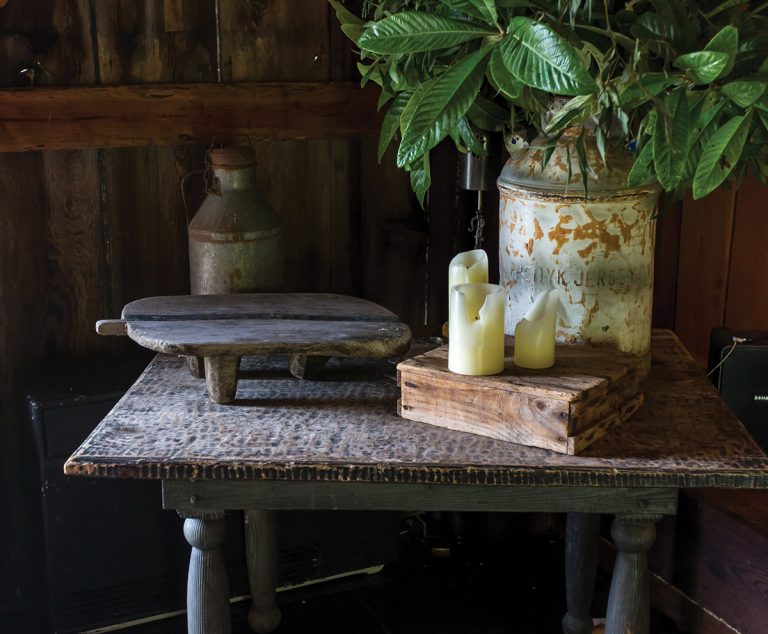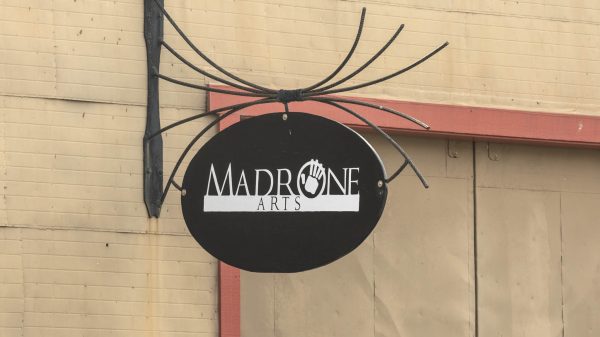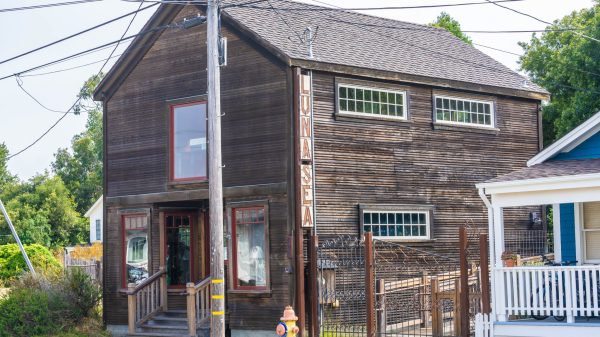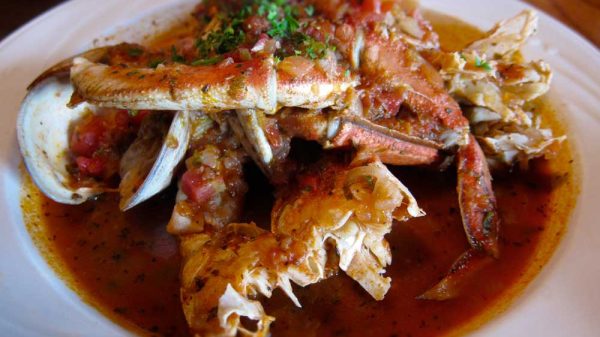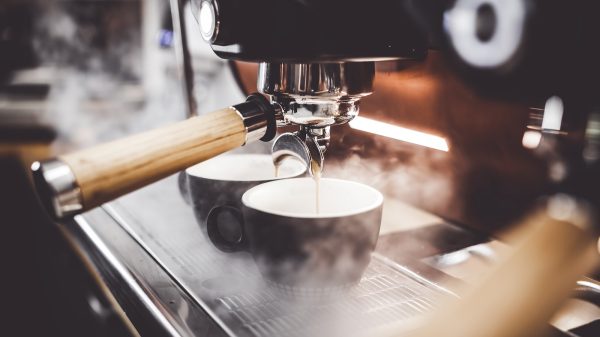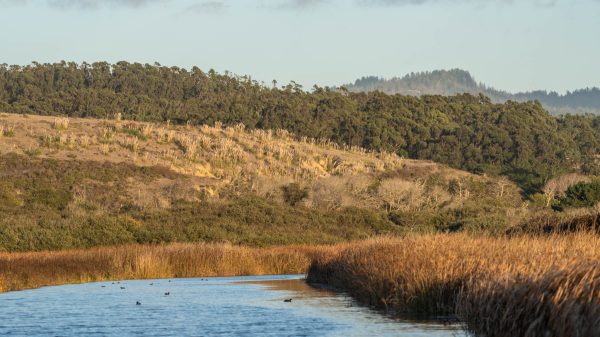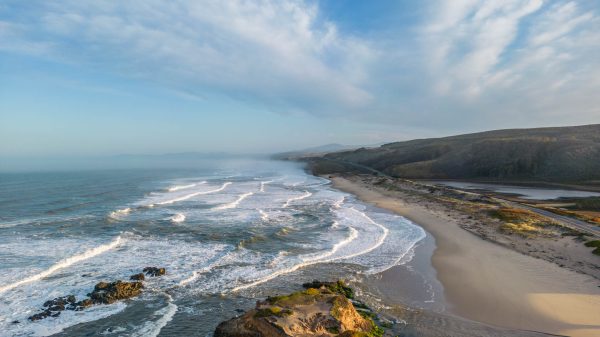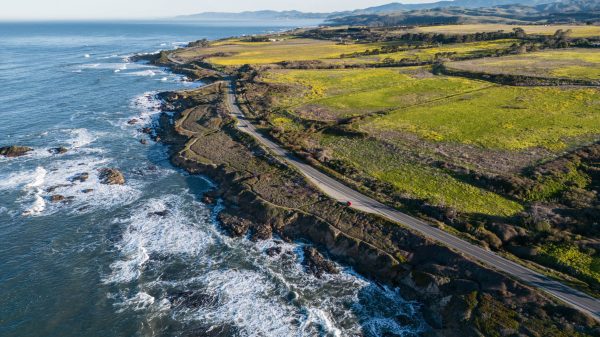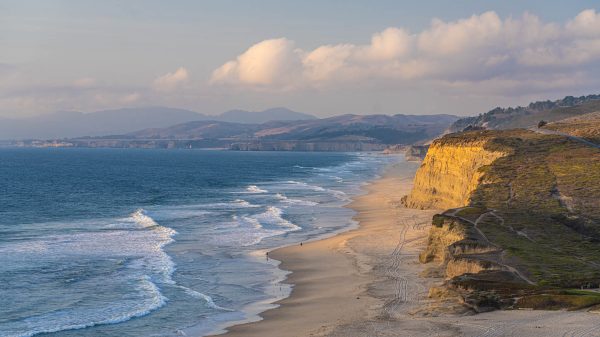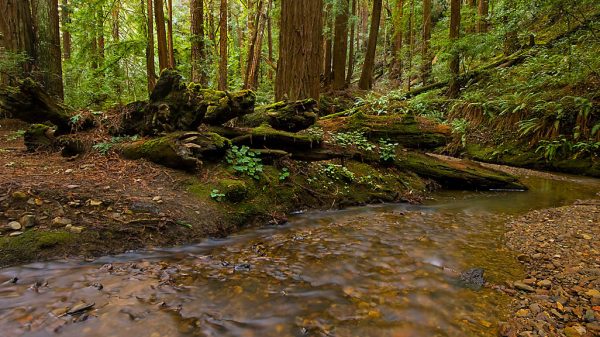Like a scene from a storybook, the rural seaside town of Pescadero is a pastoral backdrop of green rolling hills, romantic old barns, and oversized tractors rambling down quiet country roads. In the midst of this idyllic setting is Harley Farms, a charming goat farm that draws visitors with its bucolic surroundings and uber-fresh cheeses.
It takes its name from owner Dee Harley who breathed life into a dilapidated old farm and transformed it into an epicurean destination. In the early 1900s, the San Mateo coast bustled with dairy farms before they moved inland and became more industrial. Today, Harley Farms is the sole dairy farm in San Mateo County and a welcome throwback to a gentler era.
The farm sits three miles inland from the crashing waves of Pescadero Beach and exudes the kind of natural serenity that captivated Thoreau. In the morning, birdsong fills the air, misty fog lingers over distant forested hills, and a herd of Alpine goats plucks at green pastures. Yet as picture perfect as it is, owner Dee Harley has no intention of her land becoming a farm in theme only. “We’re not here to make it look like a rustic farm. It is a rustic farm,” she exclaims. “That rusty old milk container is there for a reason, not just because we think it looks quaint.”
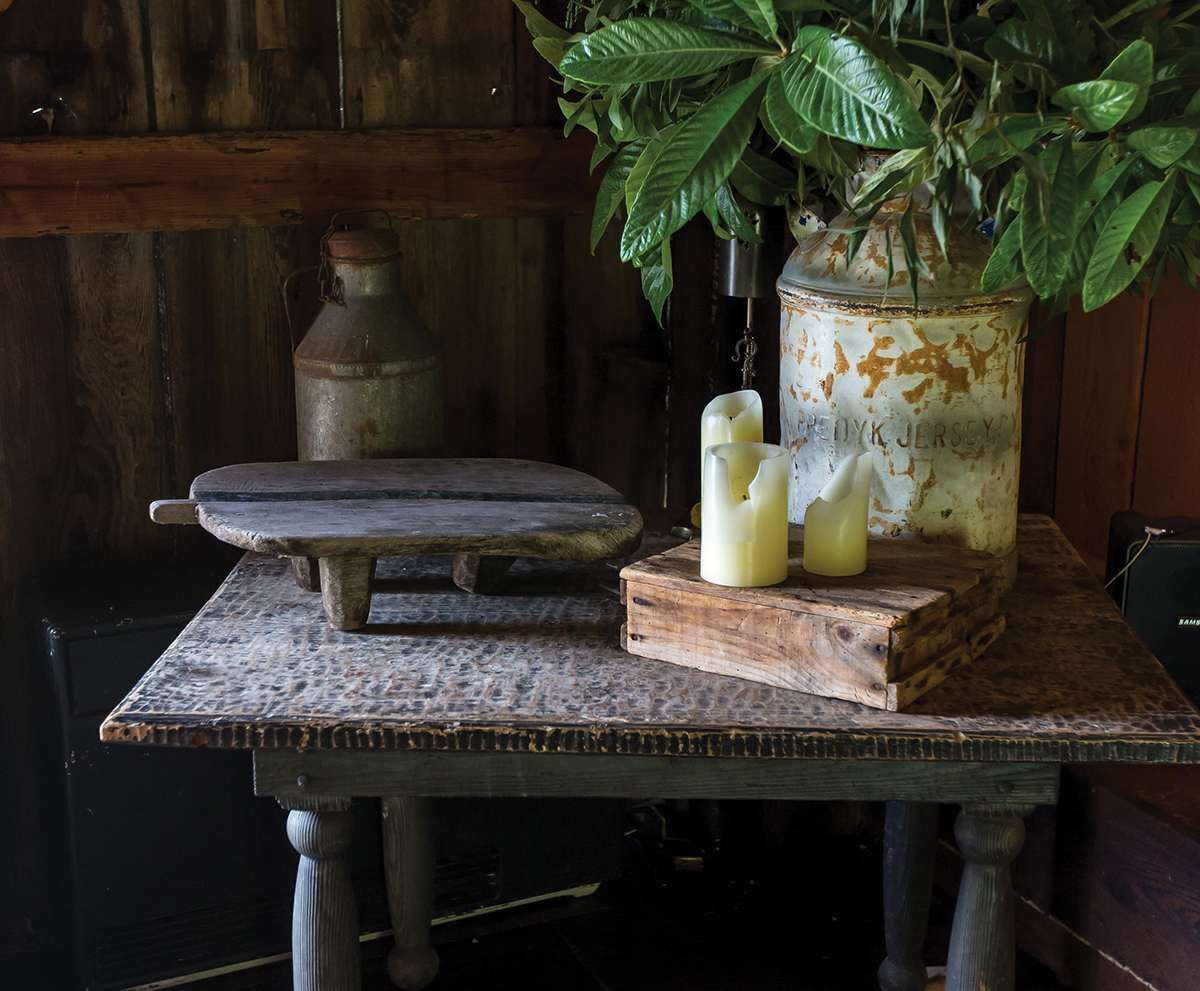
Named Farmer of the Year by San Mateo County in 2007, Dee knew from a young age that fields were in her future. A native of Yorkshire, England, with a lingering accent to prove it, Dee found her way to the California coast while traveling as a young woman. She found work at a local herb farm, met her future husband, and settled in Pescadero where the green landscape called to mind her childhood home. She landed on an abandoned 1910 dairy farm whose fallow land and derelict buildings sat unused for decades. One day, a dairy farmer from nearby Davenport dropped by, sized up the property, and persuaded Dee to buy goats to provide her with milk throughout the upcoming winter.
Suddenly, Dee had six Alpine goats and no idea what to do with them. “Aside from goldfish, we never had animals growing up,” Dee says. She started milking the goats, supplying it to the Davenport dairy, and watched as the goats began to multiply. As milk production grew, Dee started making her own cheese and, before she knew it, she was operating a farmstead dairy.
“In some ways, being far from help served me well,” Dee says of the origins of Harley Farms. “I had to learn to do it all myself.”
Today, Dee’s herd of roughly two hundred goats are descendants of those original six. Guarding the gentle creatures are a pair of wooly llamas that shepard the goats and protect them from mountain lions, bobcats and anything that might be tempted to drop in for a snack. Early each morning, goats clip-clop into a historic milking parlour where they produce the rich milk that bears the most wonderful chèvre. The cheese that visitors taste was likely made the day before from milk produced two days prior. Each cloudlike bite is clean and mild, supple and satisfying. What does Dee offer to those who are certain they don’t like goat cheese? “You need to taste ours,” she says. “Push through your bad experience. Trust me, you’ll be converted.”
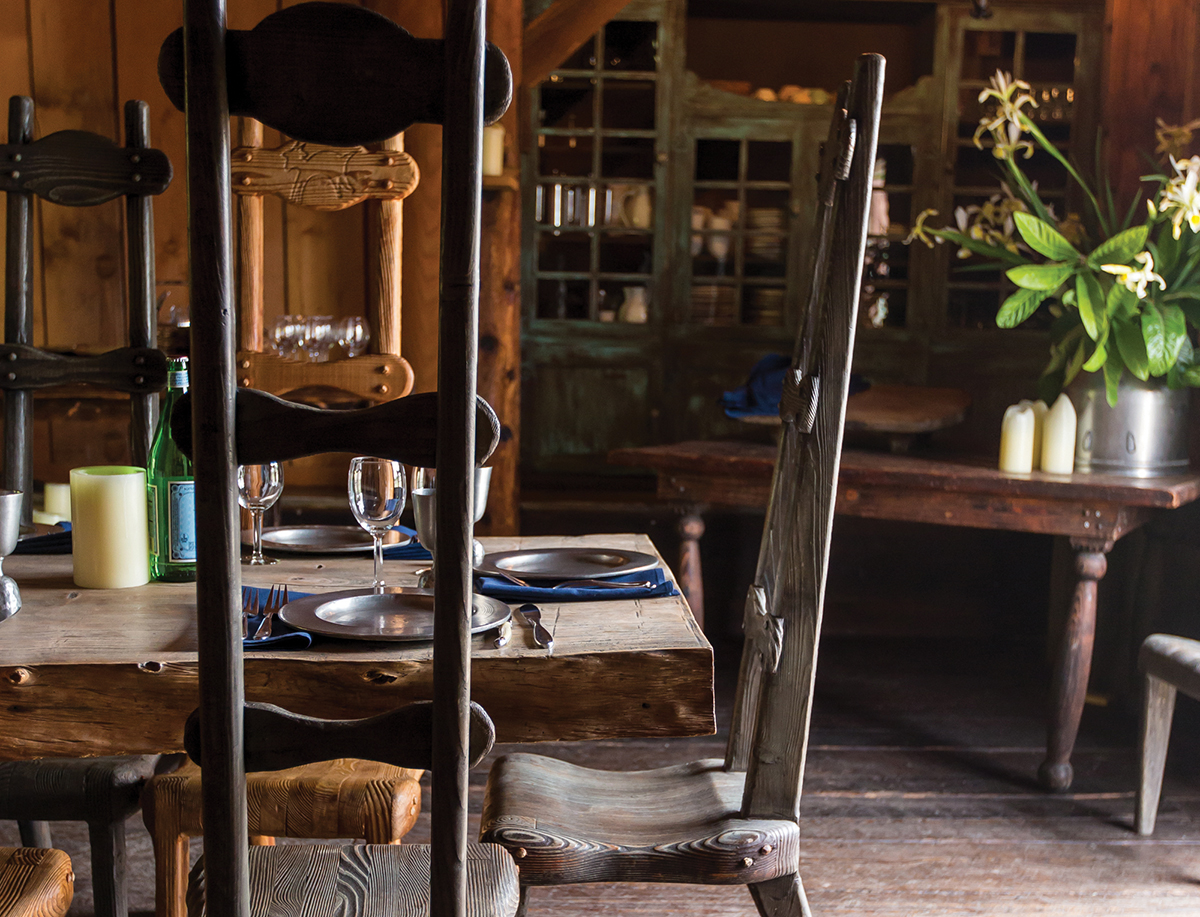
The sweet, ocean-perfumed air might be the secret ingredient. “It wouldn’t taste the same if we were in Sacramento,” says Dee referring to the salt-tinged breezes that find their way into the grass that goats graze upon. Dee shares a story of her chèvre being presented at a Slow Food show in Italy when a taster immediately proclaimed that it must have been made near the ocean. “We really have created an essence of place,” says Dee. Everything that goes into the cheese—from grass to goat to milk—is produced on the farm.
The process for making the cheese couldn’t be any simpler. Each goat produces roughly one gallon a day which flows through visible stainless steel pipes from the milking parlour into a vat in an adjacent dairy room. The milk is pasteurized, mixed with culture and rennet, and then hung in cheesecloth to separate the curds and whey. Afterwards, curds are sprinkled with salt, refrigerated, and hand-shaped into rounds before being adorned with fresh herbs and flowers plucked from the garden. In an age when grocery item ingredients require double-checking, Harley Farms is the real deal.
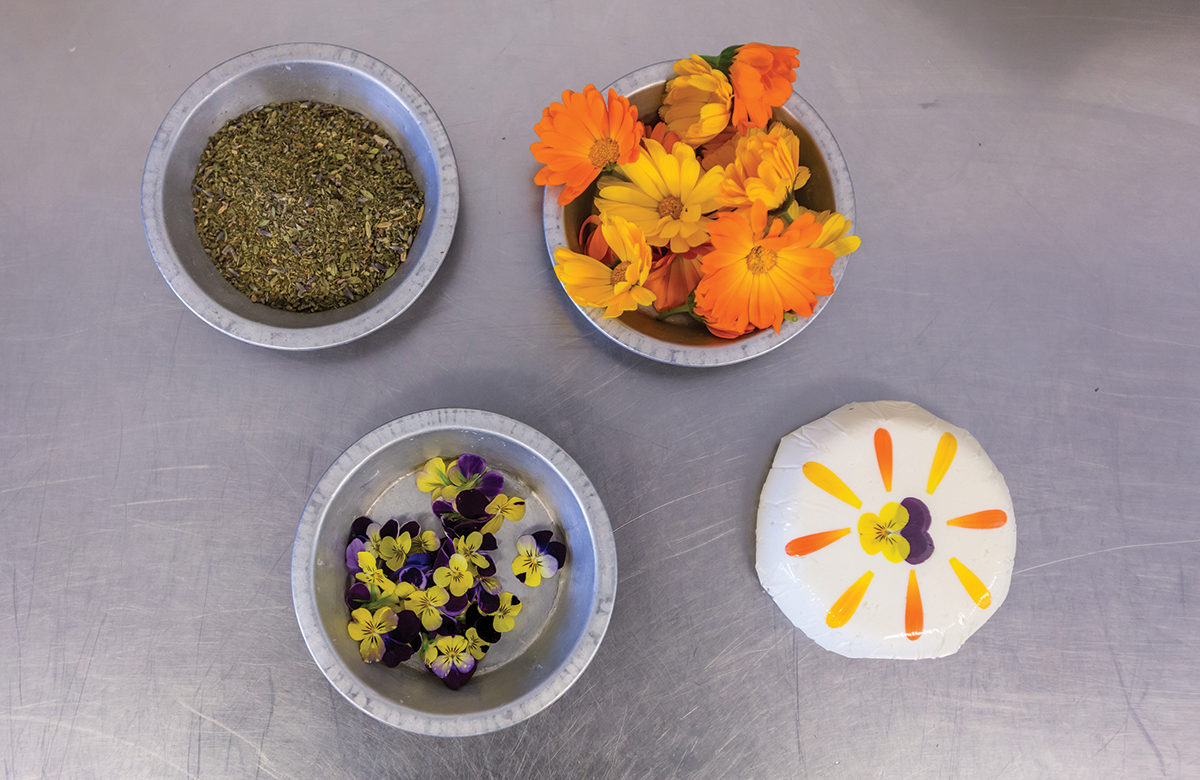
Dee explains that she’s never marketed the farm. After one visit, it’s apparent how enthusiastic word would spread. That’s in addition to the numerous awards and accolades the farm has earned for its farming practices, sustainability, and of course, delicious cheeses. As the property became more prominent, eager customers who wanted to buy cheese and see the goats would knock on Dee’s door and wake her from bed. So she transformed the old birthing stalls in the hay barn into a cheese shop and stocked it with additional products made on the farm, from milk-based apothecary products to a surprisingly resilient cheese-based paint.
“It’s fun to do new things,” says Dee. “It keeps it interesting.” Maybe more importantly, the diverse income streams allow Dee to keep the farm at its intimate size, something that she clearly cherishes. Outside the shop, she only has a handful of wholesale accounts. The majority of Harley Farms cheese is sold directly to customers at the farm or online.
Harley Farms offers weekend tours where guests can experience the rhythm of the farm in person. Dee also encourages visitors to drop by anytime the farm is open. Guests can wander the main corral, delight in the edible flower gardens, and nibble on cheese while goats nibble at unwatched shirt sleeves. Visit in spring, when hundreds of tiny, wobbly-legged kids scamper about with little bleats that will melt your heart. Pop into the cheese shop and sample a smorgasbord of fresh cheeses—herbed chèvre, fromage blanc, feta, and ricotta—as well as local honey, olive oils, jams, and a glass case full of decadent confections. Do not leave without trying the game-changing cheesecake. Grab a baguette and your favorite chèvre and head for the pastoral picnic area. Kiddos and pets are welcome.
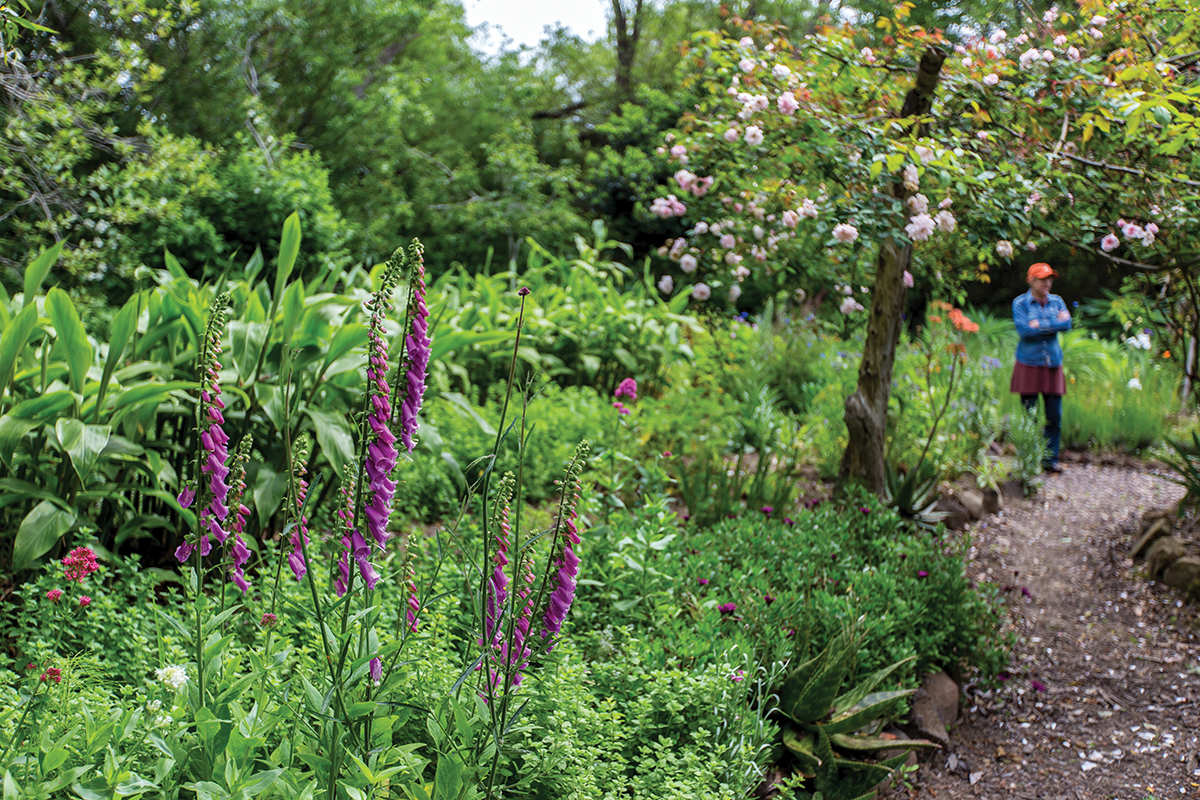
Harley Farms also presents a series of popular farm dinners where lucky guests dine in an enchanting light-strung barn seated around a dramatic, handmade dining table. The farm hosts a handful of small weddings each year which transform the property into a candlelit wonderland. “It’s like one big art project,” says Dee. Still, throughout it all, she insists that the farm comes first. “If a pump breaks, that means a tour or a fancy dinner is going to be interrupted and will have to wait.”
What does Dee hope visitors leave with? “With a sense of pleasure in their bones,” she says with a smile.
